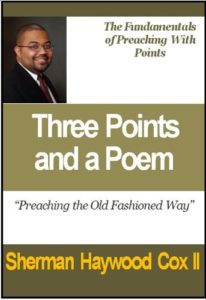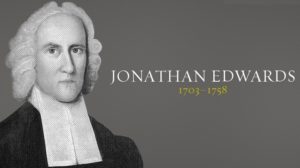My mentor, Haddon Robinson, used to say there were three things you could do to an idea: you could explain it, prove it, or apply it.
[Look at the manuscript you’re creating for your next preaching/teaching assignment and locate these segments.]
That rhetorical strategy has been around for a while. Jonathan Edwards didn’t invent it, but used it in his day (early 18th century). His words were explication, confirmation, and now application.
Now, I know you’re familiar with application, but Edwards might help you; it has helped me and continues to do so. Here’s how.
First, before Sunday, check to see if your Scripture is either doctrinal or practical.
If it’s doctrinal, plan on showing the effects that believing this doctrine has on the Christian life (thinking and acting). It’s tempting to only explain or prove a doctrine, but Edwards moved from those two to application. “Since I believe in God’s sovereignty as expressed in this Scripture, it affects me by…”
Last evening while teaching through An Orthodox Catechism Q&A on the providence of God, I asked the folks what our day would be like if we began with affirmation about this wonderful ability of our God to uphold every facet of our lives.
If your Scripture is practical, does it provide reproof, or consolation, or exhortation? Edwards was a master at providing motives either from “Profit” or “Danger” that would “excite the affections” He was meticulous in providing the “Meanes to direct the actions” (p. 31 in Kimnach).
I quickly realized that I do not spend near enough time providing motives to move the affections. I am too quick to direct the actions from the text without explaining and proving why such application is the right thing to do. That was new to me: combining all three in the application of the sermon.
May our Lord help you build your sermon/lesson so He continues to receive glory in the church and in Christ Jesus (Ephesians 3:21).
Randal









